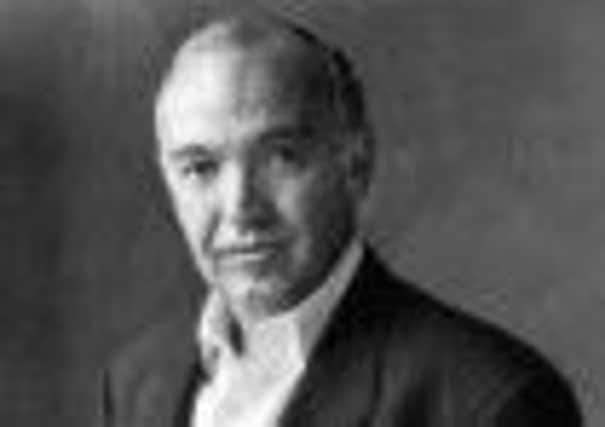Book review: Leaving Berlin by Joseph Kanon


Leaving Berlin
Joseph Kanon
Simon & Schuster, 384pp, £12.99
He usually includes some real-life ones too; in this novel we have Berthold Brecht and Helene Weigel, preparing for the first production of Mother Courage in East Berlin .
It is 1949, the year of the Berlin Airlift, after the Russians had closed the roads and railways leading to the western sectors of the city.Neither of the German states has yet been established, though the Communists are already building what will become the DDR. The Wall has not yet been built, and, if you can be admitted through the checkpoints it is still possible to travel between the East and West Berlin.
Advertisement
Hide AdAlex Meier, half-Jewish socialist refugee from the Nazis and distinguished novelist, has returned to the city, having fallen foul of the House Committee on Un-American Activities and been expelled from the USA. He is made welcome in the East; his return is seen as a notable coup for the Communists. However, we soon learn that he has also been recruited by the CIA. If he works for them, he will eventually be allowed to return to the USA, where he has a ten year-old son. Alex has old friends as well as new admirers in the city, notably the love of his youth, Irene, daughter of a Prussian Junker family. He owes the family a debt; Irene’s late father used his influence to free him from a Nazi concentration camp. Irene is now the mistress of a senior Russian officer, but retains, it seems, a tendresse for Alex.
CONNECT WITH THE SCOTSMAN
• Subscribe to our daily newsletter (requires registration) and get the latest news, sport and business headlines delivered to your inbox every morning
This is the set-up, and it is a good one. The plot itself complicated, full of action, and, in the second half of the novel, violent and fast-moving. It satisfies Buchan’s recipe for this kind of thriller: a story that verges on the improbable but stays within limits of the impossible. The minor characters are good and convincing. Irene is adequate, a little more than a Bond girl, but something less than wholly credible in her emotional response to what happens. Alex himself, at first the hesitant damaged lonely writer, proves himself to be a remarkably competent, alert and ruthless. The more he takes charge of events, the less you can believe in him. But this doesn’t really matter because the second half of the novel is so plot-driven that events themselves take over and the characters lose substance.
This is both the strength and weakness of the novel. It carries it to a galloping and compulsive conclusion, and you are likely to read the last hundred pages with growing excitement – I can’t imagine anyone putting it down – but also with diminishing credulity. The moral complexity which the opening chapters promise simply evaporates. The Americans are the goodies (even though one of them will prove a traitor). The Russians and German Communists are the baddies, and those who have returned, idealistically believing in their promises of a better future, are simply deluded fools. It’s all more reminiscent of the Cold War thrillers of Helen McInnes in which black was black and white white, rather than of the murky morally ambiguous world of John le Carré.
Neverthelss it’s fair to say that a reviewer in the New York Times has claimed that “Kanon is fast approaching the complexity and relevance not just of Le Carré but even of Orwell”. I can’t see it myself, and not only because Orwell never attempted this sort of novel. What we have is more simple: a skilfully constructed routine thriller, admirably atmospheric, the picture of the ravaged Berlin excellently done. In the early chapters the mood of the returned exiles, caught between hope and apprehension, is persuasive – though only Kanon’s depiction of Brecht catches anything of the sardonic and mocking humour of Berliners. But then, as I say, events take over and it is all very exciting but not interesting. There is a final twist which may or may not surprise, but either way no longer matters.
In short this is an enjoyable thriller, high-class entertainment, one that moves fast enough to allow you to suspend disbelief as Kanon skates elegantly over the improbabilities of his plot. It’s good stuff and I read it with pleasure, but Le Carré it isn’t because in the end the only complexity is of plot and the moral ambiguity the publishers speak of fades away.